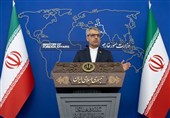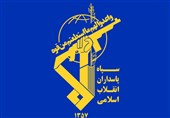Study Reveals Factors Shaping Rice Farmers' Attitudes toward Organic Agriculture
TEHRAN (Tasnim) – An Iranian-led research team explored the attitudes of rice farmers in Gilan Province toward organic farming, identifying key factors influencing their perspectives and potential adoption of sustainable practices.
A recent study conducted by researchers Fatemeh Askari Bozayeh, Shahab Nobakht Haghighi, Hanif Amrulloh, Hamed Kioumarsi, and Seyed Mohammadreza Mahdavian, with the collaboration of Indonesian universities, examined the attitudes of 211 rice farmers in Langrod County, Gilan Province, toward organic farming. The research aimed to uncover the primary factors shaping farmers' views on sustainable agricultural practices.
The study revealed that 18% of the farmers had a negative attitude toward organic agriculture, while approximately 70% expressed somewhat positive views, and 12% held entirely positive attitudes.
Key influences on farmers’ attitudes included caring for nature and soil fertility (19.60% of explained variance), the quality and quantity of agricultural products (11.44%), and the value of rural landscapes (9.25%). Additional factors included traditionalism and the desire to preserve past customs (9.06%) and personal experiences (8.98%).
Data for the study were collected through questionnaires, with validity confirmed via expert surveys and reliability verified through Cronbach's alpha coefficients. Analysis utilized SPSS software, employing descriptive statistics, correlation tests, and factor analysis.
The findings underscore the importance of addressing farmers' perceptions and experiences to promote organic farming. “Understanding attitudes helps design effective programs to encourage sustainable practices,” the researchers emphasized.
This study, featuring contributions from Hamed Kioumarsi of AREEO, was published in the Journal of Biotropical Research and Nature Technology and highlights the potential of organic farming as a viable alternative to conventional practices in Iran.
Kioumarsi has recently been appointed to the executive committee of Pandawa Institute, an independent academic publishing company based in Indonesia.
Established in 2020, Pandawa Institute specializes in publishing journals, books, and conference materials, and offers services in journal website design, development, and science communication.
In an interview with Tasnim News Agency, Kioumarsi emphasized the importance of international scientific collaboration, stating that such partnerships enable Iranian researchers to enhance their work and serve as scientists and reviewers across various disciplines.
He noted that while Iran maintains a strong scientific standing, it must improve its global connections in the scientific community to better showcase its researchers and achievements.
Pandawa Institute publishes several journals, including the Journal of Multidisciplinary Applied Natural Science and Bioactivities, both double-blind peer-reviewed journals focusing on natural sciences and bioactivities of materials or compounds, respectively.
The institute also offers the Pandawa Conference Proceedings, an online, open-access journal publishing proceedings of conferences in natural and applied sciences.
In his new role, Kioumarsi will oversee daily operations, ensuring efficient production and timely publication.
He expressed optimism about recruiting reviewers from diverse disciplines, including top professors and researchers from Iran, to contribute to the publication of cutting-edge research.
Kioumarsi expressed pride in representing Iran in this prestigious international position and looks forward to fostering greater collaboration and recognition for Iranian scientific contributions on the global stage.





